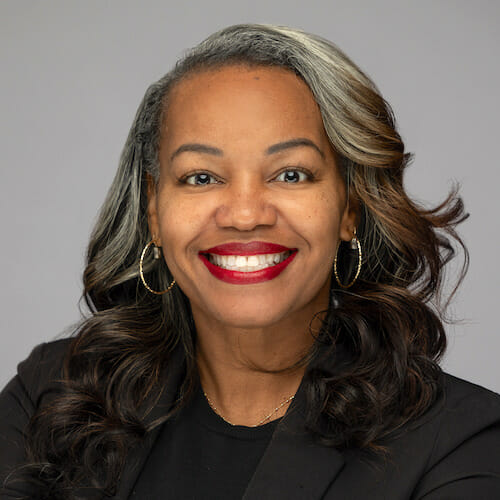
Assisted living workforce issues are expected to dominate discussions when representatives of the National Center for Assisted Living and its affiliated organizations gather today and tomorrow in the nation’s capital for a Congressional Briefing along with the American Health Care Association.
AHCA/NCAL expects more than 500 attendees at this year’s event, a spokeswoman said.
“Our greater objective is really to … bring providers from communities, from facilities, across the country to Washington DC, to let their legislators know, both in the House and the Senate, what is impacting them,” NCAL Executive Director LaShuan Bethea told McKnight’s Senior Living.
In meetings with members of Congress or their staffs, NCAL representatives and providers will stress the importance of several pieces of legislation to the assisted living industry.
- The Expanding Veterans’ Options for Long-Term Care Act (S. 495/H.R. 1815) would create a pilot program to offer participating veterans the opportunity to have their care needs met in an assisted living community rather than at a Department of Veterans Affairs home. The bill “has a broad range of bipartisan support in both the House and the Senate, as well as the Veterans Administration, and as I talk to providers across the country about the bill, people couldn’t be more excited about having this opportunity to have a pilot that they believe and we believe will clearly demonstrate the benefits of assisted living to our veterans across the country,” Bethea said.
- The bipartisan Building America’s Health Care Workforce Act (H.R. 468) would continue a waiver that was in effect during the COVID-19 public health emergency to extend from four months to up to two years the amount of time temporary nurse aides have to complete their certifications. Although the bill’s sponsors are targeting it to skilled nursing facilities and nursing facilities, Bethea said that “what we found is that many [certified nursing assistants] came into our profession,” although not all assisted living providers require CNAs. “Some of them worked in skilled nursing settings, and many of them worked in assisted living settings, and they found that this was an industry that they loved,” she said.
- The Health Care Workforce Resilience Act (S. 1024/H.R. 2255 last session) has not been reintroduced, but NCAL is seeking its reintroduction. The bill would allow employers to access immigration visas that have gone unissued in recent years for physicians, some nurses and other advanced clinicians. “Registered nurses and licensed practical nurses are also being used in assisted living, especially where we’re seeing states starting to expand the services that can be provided in that setting under the guise of the delegating nurse,” Bethea said. “And so if, for example, the state allows for medication administration but there must be a delegating nurse in place in order to be able to do that, you need a nurse. And if you don’t have access to a nurse because there’s a limited pool, then you won’t be able to provide those services to the residents in your community.”
NCAL members also will be talking to members of Congress or their staffs about the potential impact on assisted living of the nursing home minimum staffing rule, expected to be released soon by the Centers for Medicare & Medicaid Services.
“The minimum staffing rule does not directly impact assisted living providers, but what we all know across the board is that there are a limited number of healthcare workers,” Bethea said. Assisted living providers, she noted, already are implementing waiting lists and limiting move-ins, even when units are available, due to worker shortages.
“There’s a limited number of CNAs, there’s a limited number of registered nurses, a limited number of licensed practical nurses,” Bethea said. “A staffing mandate on long-term care is going to pull resources from the assisted living setting.”
Indeed, in a recent survey by the AHCA/NCAL-affiliated Pennsylvania Health Care Association, all responding owners of assisted living residences and personal care homes said they are worried that assisted living communities and personal care homes could lose staff members to nursing homes if a minimum staffing requirement is implemented for nursing facilities by the federal government.
Although the industry is “well on our way into recovery” from the COVID-19 pandemic, Bethea said, “I think that everyone is starting to recognize that we must collectively work together on workforce, because it is one of the things that is slowing down our progress in terms of recovery.”



